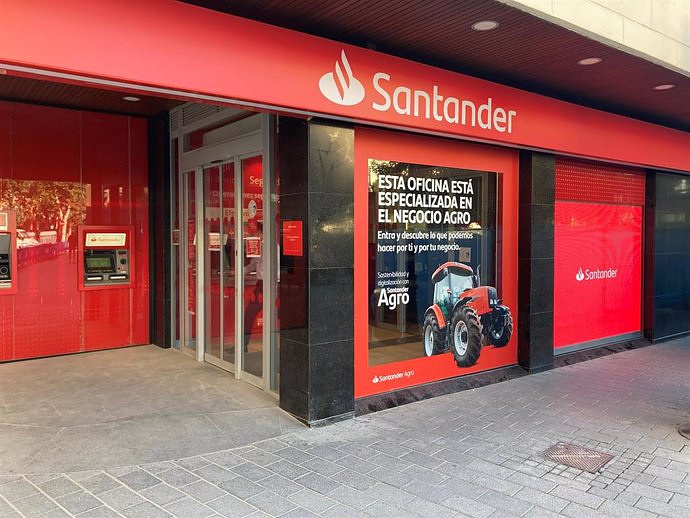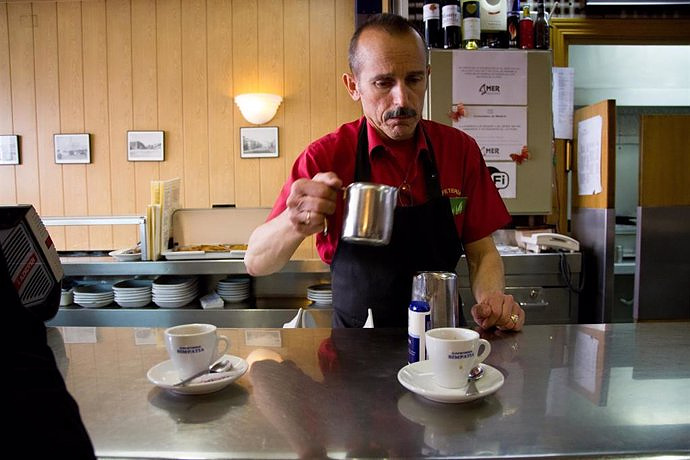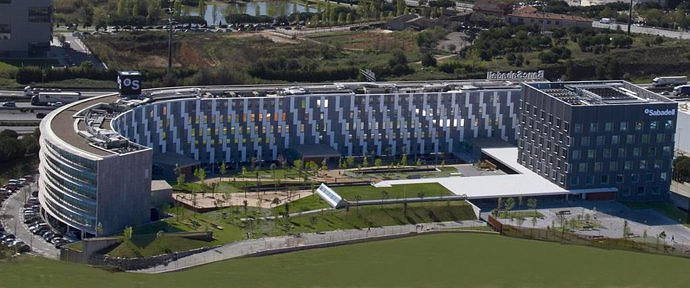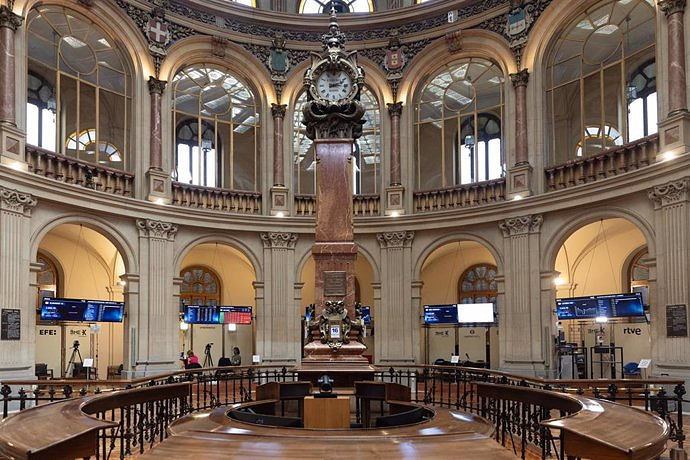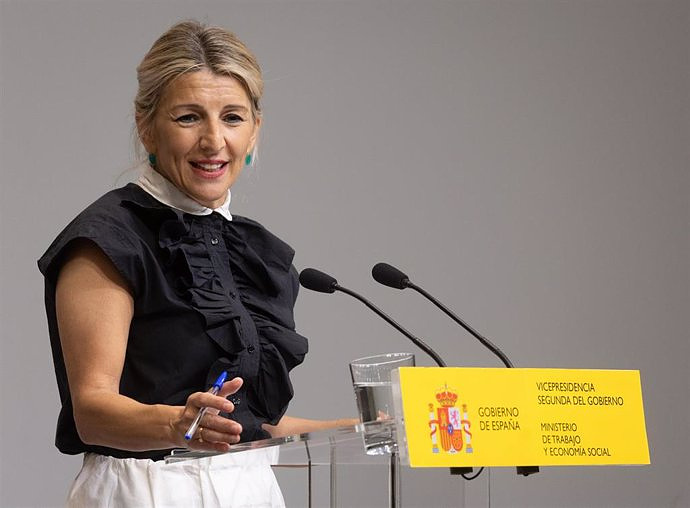It highlights that the capital increase carried out that year yielded profits for investors and that the prospectus was clear
MADRID, 20 Oct. (EUROPA PRESS) -
The auditor of the consulting firm PwC José María Sanz assured this Thursday before the judge of the Santiago Pedraz National High Court that he did not detect any irregularity or anomaly when reviewing the accounts of Banco Popular for the year 2012, which in his opinion did express the real image of the entity.
Legal sources have explained to Europa Press that in his statement before the head of the Central Court of Instruction Number 5, which has lasted about an hour, Sanz has indicated that the capital increase carried out that same year left a good economic return for the investors and that the brochure that included the details of the same was explained correctly.
The version offered by the auditor has coincided with that of the former president of the entity Ángel Ron and his 'number two', former vice president Roberto Higuera. Both declared this Wednesday and denied any type of irregularity in the accounts and in the aforementioned extension of 2012, on which the judge puts the magnifying glass.
In this case, Judge Pedraz investigates - after admitting two complaints for processing last June - into alleged crimes of fraud against investors or breach of the duties of information in this capital increase.
It should be noted that these facts are different from those being investigated in another AN court, the Central Investigation Number 4. Specifically, Judge José Luis Calama analyzes two phases of the Popular resolution process: the alleged accounting irregularities of the entity in 2016, with the capital increase that year, and the leaks to the press a year later that would have caused its resolution in mid-2017.
Before the judge, Sanz explained how goodwill is calculated and why its value changed with the acquisition by Popular of Banco Pastor. Along these lines, he has highlighted that there is a rule that regulates when and how the valuation should be made in the case of a business combination.
That was what Popular did, explained the auditor, when effective control of the entity was taken. It was at that time that the goodwill that was generated was reviewed by EY.
The acquisition of the Pastor is one of the questions on which the judge investigates. In one of the complaints it was pointed out that the Board of Directors of Banco Popular was aware that, if it projected the reality of the company's situation to the market, the 2012 capital increase would not achieve the desired results to achieve the injection of money with which to "patch" their critical situation, so that they decided to alter the faithful image of the entity.
And this would have been done especially, the complainants detail, after the integration of Banco Pastor's accounts into Banco Popular, in order to give an appearance of solvency when in reality, the complaint points out, before a ruinous entity.
The auditor, however, has drawn attention to the fact that the Fundación Barrié de la Maza --the main owners of El Pastor-- formed part of the board of directors of Popular at the time of the acquisition. These, in turn, participated in the 2012 capital increase.
From Sanz's point of view, it would make little sense for the owners of Banco Pastor to decide to invest in the aforementioned expansion if they were aware that the financial situation of the acquired entity was not correct.

 Exploring Cardano: Inner Workings and Advantages of this Cryptocurrency
Exploring Cardano: Inner Workings and Advantages of this Cryptocurrency Seville.- Economy.- Innova.- STSA inaugurates its new painting and sealing hangar in San Pablo, for 18 million
Seville.- Economy.- Innova.- STSA inaugurates its new painting and sealing hangar in San Pablo, for 18 million Innova.- More than 300 volunteers join the Andalucía Compromiso Digital network in one month to facilitate access to ICT
Innova.- More than 300 volunteers join the Andalucía Compromiso Digital network in one month to facilitate access to ICT Innova.-AMP.- Ayesa acquires 51% of Sadiel, which will create new technological engineering products and expand markets
Innova.-AMP.- Ayesa acquires 51% of Sadiel, which will create new technological engineering products and expand markets The Prado will exhibit Caravaggio's 'Ecce Homo' from May 28 after a temporary loan agreement with Conalghi
The Prado will exhibit Caravaggio's 'Ecce Homo' from May 28 after a temporary loan agreement with Conalghi The judge officiates the UCO of the Civil Guard in the case against Begoña Gómez for alleged influence peddling
The judge officiates the UCO of the Civil Guard in the case against Begoña Gómez for alleged influence peddling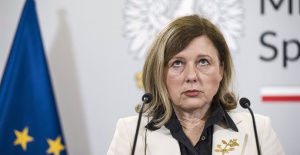 Brussels sees no more risk for the rule of law in Poland and is preparing to close the sanctioning file
Brussels sees no more risk for the rule of law in Poland and is preparing to close the sanctioning file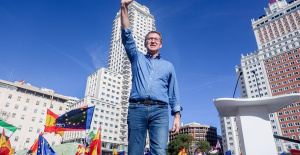 The PP calls to mobilize on May 26 against the amnesty, the "hoaxes" and the "suspicion of corruption" of the Government
The PP calls to mobilize on May 26 against the amnesty, the "hoaxes" and the "suspicion of corruption" of the Government How Blockchain in being used to shape the future
How Blockchain in being used to shape the future Not just BTC and ETH: Here Are Some More Interesting Coins Worth Focusing on
Not just BTC and ETH: Here Are Some More Interesting Coins Worth Focusing on UMH researchers are working on a high-quality apricot crop that requires less irrigation water
UMH researchers are working on a high-quality apricot crop that requires less irrigation water The UPV develops an application to improve the quality of life of patients with glioblastoma
The UPV develops an application to improve the quality of life of patients with glioblastoma A sensor system obtains the fingerprint of essential oils and detects if they have been adulterated
A sensor system obtains the fingerprint of essential oils and detects if they have been adulterated Faraday UPV presents the 'Origin' rocket to exceed 10 km of flight: "It is the beginning of the journey to space"
Faraday UPV presents the 'Origin' rocket to exceed 10 km of flight: "It is the beginning of the journey to space" A million people demonstrate in France against Macron's pension reform
A million people demonstrate in France against Macron's pension reform Russia launches several missiles against "critical infrastructure" in the city of Zaporizhia
Russia launches several missiles against "critical infrastructure" in the city of Zaporizhia A "procession" remembers the dead of the Calabria shipwreck as bodies continue to wash up on the shore
A "procession" remembers the dead of the Calabria shipwreck as bodies continue to wash up on the shore Prison sentences handed down for three prominent Hong Kong pro-democracy activists
Prison sentences handed down for three prominent Hong Kong pro-democracy activists ETH continues to leave trading platforms, Ethereum balance on exchanges lowest in 3 years
ETH continues to leave trading platforms, Ethereum balance on exchanges lowest in 3 years Investors invest $450 million in Consensys, Ethereum incubator now valued at $7 billion
Investors invest $450 million in Consensys, Ethereum incubator now valued at $7 billion Alchemy Integrates Ethereum L2 Product Starknet to Enhance Web3 Scalability at a Price 100x Lower Than L1 Fees
Alchemy Integrates Ethereum L2 Product Starknet to Enhance Web3 Scalability at a Price 100x Lower Than L1 Fees Mining Report: Bitcoin's Electricity Consumption Declines by 25% in Q1 2022
Mining Report: Bitcoin's Electricity Consumption Declines by 25% in Q1 2022 Oil-to-Bitcoin Mining Firm Crusoe Energy Systems Raised $505 Million
Oil-to-Bitcoin Mining Firm Crusoe Energy Systems Raised $505 Million Microbt reveals the latest Bitcoin mining rigs -- Machines produce up to 126 TH/s with custom 5nm chip design
Microbt reveals the latest Bitcoin mining rigs -- Machines produce up to 126 TH/s with custom 5nm chip design Bitcoin's Mining Difficulty Hits a Lifetime High, With More Than 90% of BTC Supply Issued
Bitcoin's Mining Difficulty Hits a Lifetime High, With More Than 90% of BTC Supply Issued The Biggest Movers are Near, EOS, and RUNE during Friday's Selloff
The Biggest Movers are Near, EOS, and RUNE during Friday's Selloff Global Markets Spooked by a Hawkish Fed and Covid, Stocks and Crypto Gain After Musk Buys Twitter
Global Markets Spooked by a Hawkish Fed and Covid, Stocks and Crypto Gain After Musk Buys Twitter Bitso to offset carbon emissions from the Trading Platform's ERC20, ETH, and BTC Transactions
Bitso to offset carbon emissions from the Trading Platform's ERC20, ETH, and BTC Transactions Draftkings Announces 2022 College Hoops NFT Selection for March Madness
Draftkings Announces 2022 College Hoops NFT Selection for March Madness


